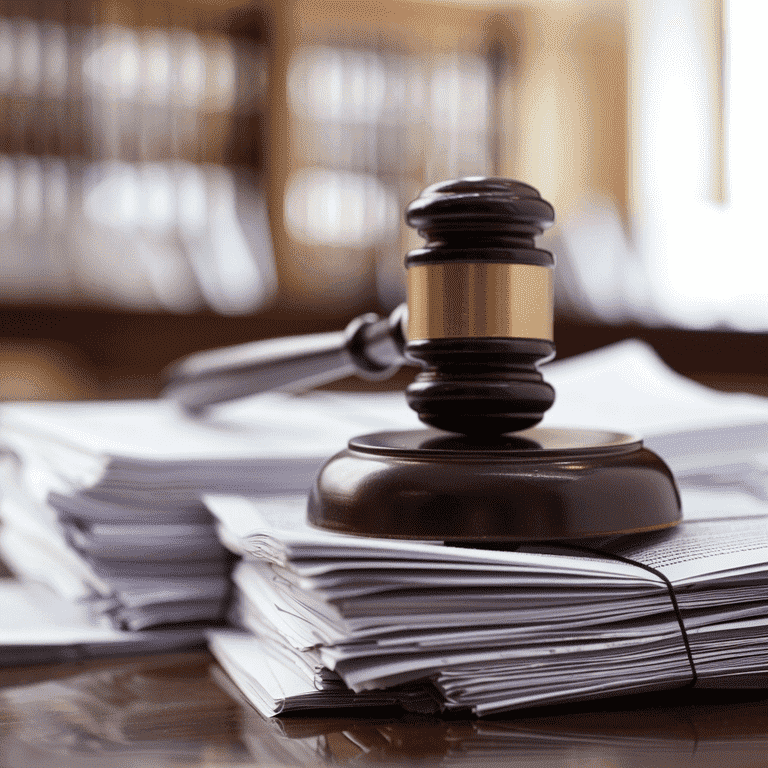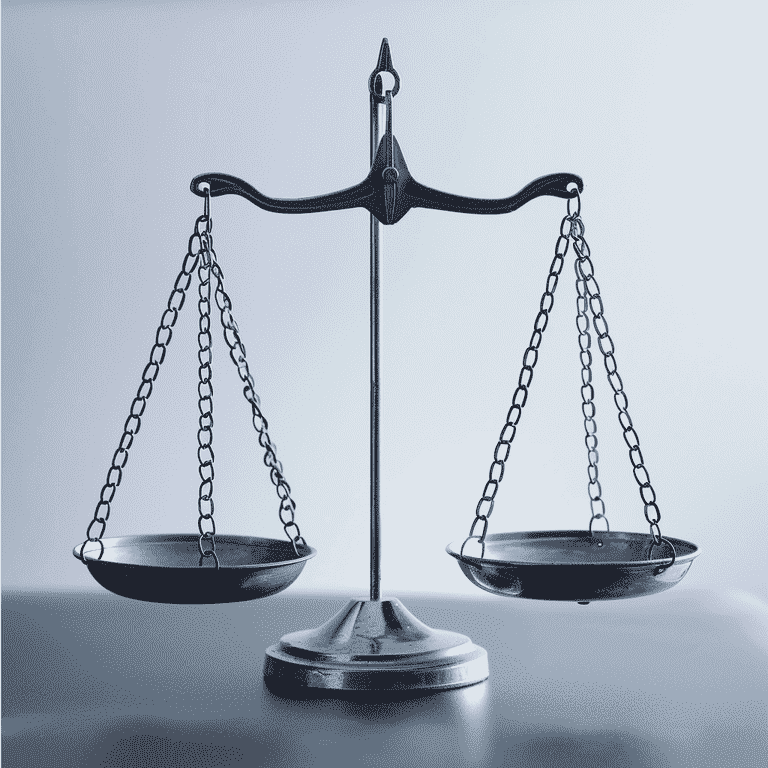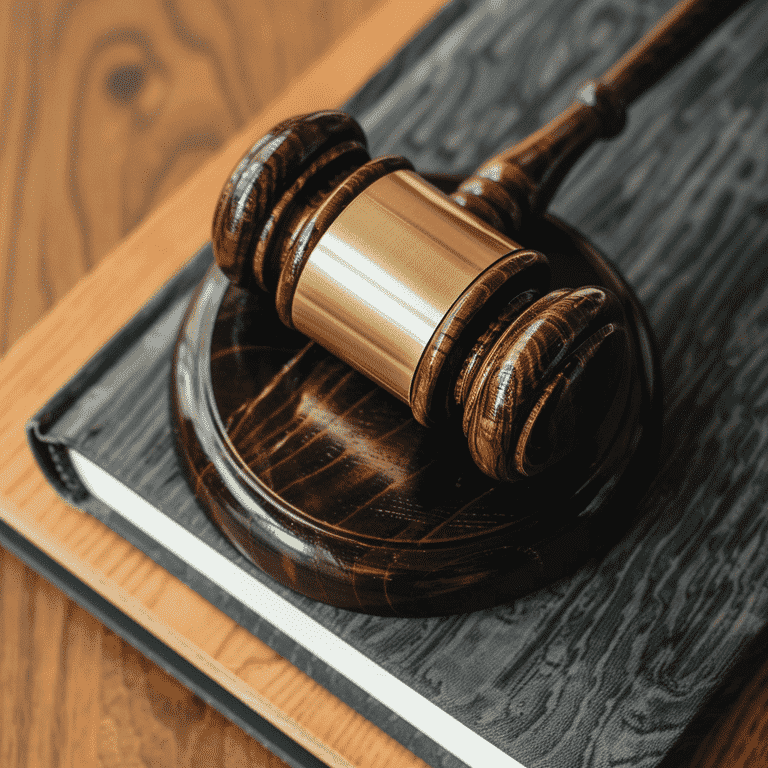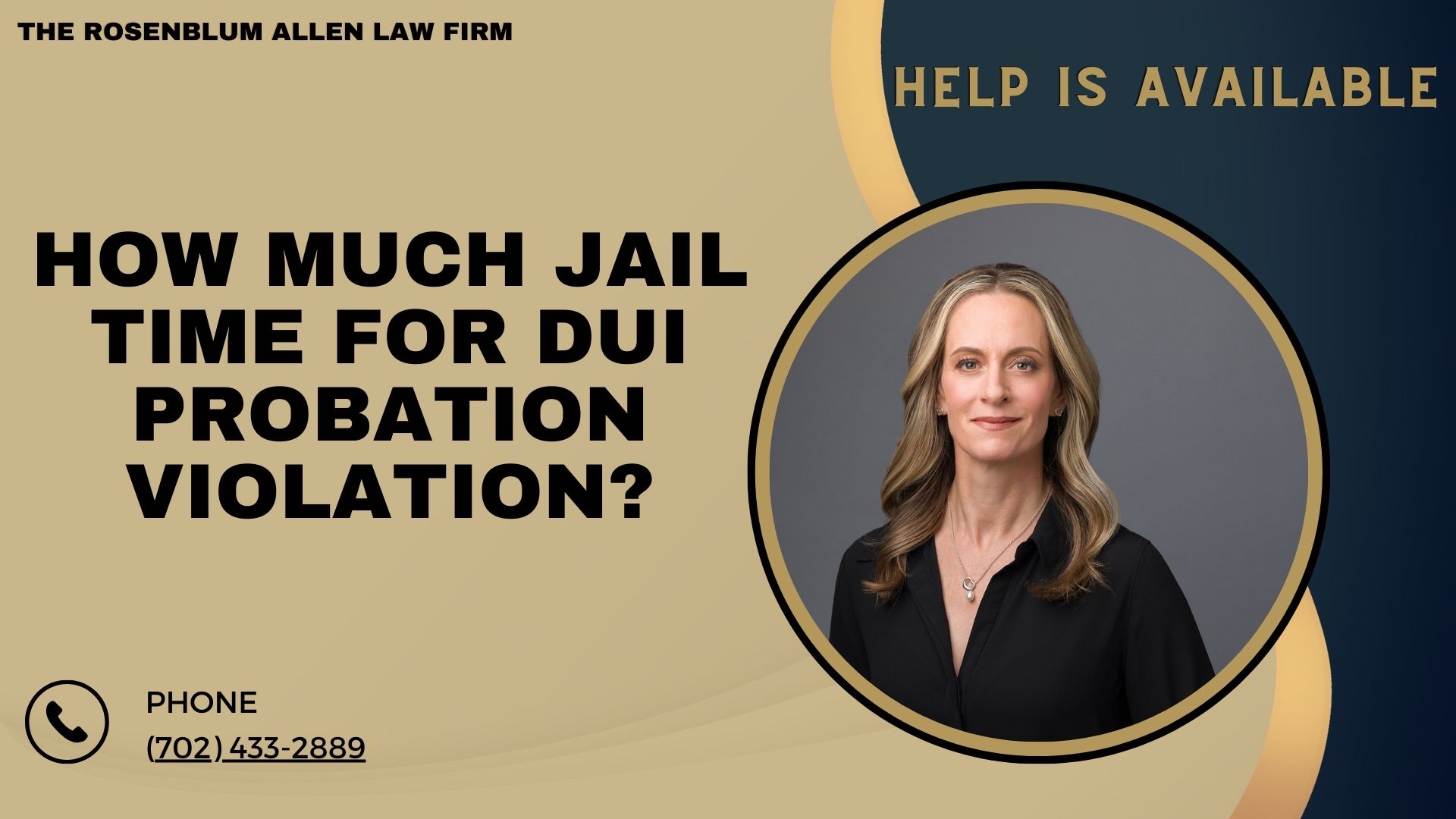If the court convicts a person of driving under the influence (DUI), it may place them on probation. This happens instead of, or also to, serving jail time. Probation has rules and conditions. Breaking them can lead to harsh results, like more jail time. Understanding these repercussions is crucial for anyone facing or currently on DUI probation.
 Understanding DUI Probation
Understanding DUI Probation
Definition of DUI Probation
DUI probation is a court-ordered period. During it, the court monitors a DUI convict. They must meet specified conditions. These conditions often include but are not limited to:
Regular check-ins with a probation officer
Abstinence from alcohol and drugs
Participation in DUI education or treatment programs
Avoiding any new criminal charges
Probation is an alternative to jail. It aims to rehab the offender and prevent future DUIs.
Terms and Conditions of DUI Probation
The terms of DUI probation can vary widely. They depend on the offense’s severity, the person’s history, and state laws. Common conditions include:
No further legal violations: Even minor infractions can be considered probation violations.
Substance abuse treatment: Many offenders are required to undergo treatment or counseling.
Community service: Offenders may need to complete several community service hours.
Duration of DUI Probation Periods
The length of DUI probation can range from six months to several years. It depends on the case and local laws.
Common Reasons for DUI Probation Violations
Violating probation can occur in several ways, including but not limited to:
Failure to appear in court: Missing a scheduled court date without a valid reason.
Failing drug or alcohol tests: Many individuals on DUI probation are subjected to random testing.
Committing new offenses: Getting charged with another crime can lead to a probation violation.
The first step is to understand your probation’s conditions and pitfalls. This is key to navigating DUI probation and avoiding more penalties.
In the following sections, we’ll cover the legal results of DUI probation violations. We’ll also cover the factors on jail time and more. This information is your roadmap through the complexities of the legal system. This design empowers you with knowledge and equips you for what lies ahead.

Legal Consequences of DUI Probation Violation
Violating the terms of your DUI probation is serious and can lead to severe consequences. The courts do not take these violations lightly. The penalties can greatly impact your life.
General Overview of Penalties
When you violate probation, the court has broad discretion in determining the penalty. This could range from a warning for minor violations to revoking probation. More severe or repeated violations could mean imposing the original jail sentence.
Factors Influencing the Severity of Penalties
Several factors can affect how harshly you are penalized. They impact DUI probation violations. These include:
Prior DUI convictions: Individuals with a history of DUI are likely to face stricter penalties.
Nature of the probation violation: The severity of the breach (e.g., committing a new DUI vs. missing a counseling session) plays a critical role.
State-specific laws and regulations: Penalties can vary widely depending on where the violation occurs, as each state has laws regarding DUI and probation violations.

Jail Time for DUI Probation Violation
This is one of the most pressing questions for those facing a probation violation. They ask, “How much jail time could I get?” The answer depends on many factors, including those above.
Case Scenarios and Potential Outcomes
Let’s look at some scenarios. They will show how factors might affect potential jail time.
First-time Offense vs. Repeat Offenses: A first-time probation violator might receive a warning or short jail time, whereas repeat offenders face longer sentences.
Minor vs. Major Violations: Minor infractions might result in additional community service hours, whereas significant violations like committing a new DUI could lead to substantial jail time.
Average Jail Time Based on Violation Severity
It’s hard to give exact figures due to case variety and state laws. But, the table offers a rough guide:
Potential Jail Time
Minor Violation – Warning to 30 days
Moderate Violation – 30 days to 6 months
Major Violation – Six months to an original sentence or more
Short-term Consequences
Short jail time may seem bearable. But, it can quickly harm one’s life. It can cause job loss and money problems.
Long-term Consequences
Long or repeated jail sentences can have big impacts. They include lasting damage to your reputation. Also, they cause trouble finding a job and strain personal relationships.
Understanding the potential jail time for a DUI probation violation is crucial. It shows the importance of following probation terms. And, it shows the serious results of breaches. As we move forward, we’ll explore options to jail time. We’ll also look at role of lawyers and how state laws can affect outcomes. Remember, dealing with the aftermath of a violation is hard. Staying informed is the best way to defend yourself.

Alternatives and Additional Penalties
Facing the possibility of jail time can be daunting, but it’s not always the inevitable outcome. Courts sometimes offer alternatives, especially for those genuinely committed to rehabilitation.
Alternative Sentences to Jail Time
- Community Service: Often seen as a way to give back to the community while maintaining your daily responsibilities.
- Extended Probation: An increase in the probationary period can serve as a reminder of the importance of compliance.
- Rehabilitation Programs: Participation in alcohol or drug rehabilitation programs can be both a penalty and an opportunity for those struggling with substance abuse.
Additional Penalties and Fines
Violating DUI probation can also lead to financial penalties and other restrictions:
- Increased Fines: These can place a significant financial burden on violators, adding to the stress of the situation.
- License Suspension or Revocation: Losing the ability to drive can dramatically affect your daily life and independence.
- Mandatory Counseling or Educational Programs: These programs aim to prevent future offenses by addressing the underlying issues related to DUI behavior.

The Role of Legal Representation
Navigating the aftermath of a DUI probation violation can be complex and intimidating. Legal representation can make a significant difference in the outcome of your case.
The Importance of Hiring a DUI Attorney
A DUI attorney understands the legal system and can offer guidance and support through this challenging time. They can:
- Navigate the Legal System: Attorneys are familiar with court procedures and can handle filings, hearings, and negotiations on your behalf.
- Minimize Penalties and Negotiate Alternatives: Experienced lawyers can reduce your penalties or negotiate for alternatives to jail time.
How to Choose the Right DUI Attorney
Selecting an attorney is a crucial step. Consider the following:
- Qualifications and Experience: Look for an attorney with specific experience in DUI and probation violation cases.
- Consultation and Fees: Many attorneys offer free consultations to discuss your case. Understand their fee structure and what services are included.

State-Specific DUI Probation Laws
DUI laws, as do the penalties for probation violations, vary from state to state. Understanding your state’s laws is crucial in preparing for what lies ahead.
Variation in Laws by State
Different states have different approaches to DUI probation and violations. For example, some states have zero-tolerance policies, leading to immediate and severe penalties, while others may offer more leniency to first-time violators.
Examples of State-Specific Regulations
- California: Offers DUI probation as an alternative to jail time but imposes strict conditions, including DUI school and fines.
- Florida: May require an ignition interlock device as part of probation for DUI offenders.
- Texas: Focuses on rehabilitation, with probation often including mandatory education programs.
Understanding the nuances of your state’s laws can help you and your attorney develop a more effective defense strategy.

Navigating DUI Probation Violation Hearings
If you’re facing a probation violation hearing, knowing what to expect can ease some of the anxiety associated with the process.
What to Expect During a Probation Hearing
- The Process of a Probation Violation Hearing: These hearings are typically quicker than the original DUI trial and focus on whether the probation terms were violated.
- Possible Outcomes and Next Steps: Outcomes can range from a warning to revocation of probation and imposition of the original jail sentence.
How to Prepare for a Probation Violation Hearing
- Gathering Evidence and Documentation: Prepare documents that support your case, such as proof of rehabilitation efforts or mitigating circumstances.
- Working with Your Attorney: Your attorney can help you prepare your testimony, gather evidence, and represent you during the hearing.
Facing a DUI probation violation is a serious matter, but understanding the process, potential consequences, and available resources can help you navigate this challenging time more effectively. Remember, seeking legal advice and following through with the court’s requirements can make a significant difference in the outcome of your case.

Prevention and Moving Forward
Navigating a DUI probation violation is challenging, but it’s also a wake-up call to make meaningful changes. Prevention is critical to moving forward and avoiding future legal entanglements.
Tips for Avoiding DUI Probation Violations
- Adhering to Probation Terms: Understand and follow the court’s conditions. When in doubt, consult your attorney.
- Seeking Support for Substance Issues: If alcohol or drugs are a factor, seek appropriate treatment and support groups.
- Staying Informed: Keep abreast of any changes in your probation terms and state laws regarding DUI.
- Open Communication with Your Probation Officer: Establishing a positive relationship can be beneficial, especially if issues arise.
Resources for Rehabilitation and Support
Facing DUI charges and probation can be isolating, but you’re not alone. Many resources are available to help you through this time:
- National and Local Support Groups: Organizations like Alcoholics Anonymous (AA) offer support and accountability.
- Online Resources and Counseling Services: Digital platforms provide access to counseling and educational materials on substance abuse and legal issues.
- State-Specific Programs: Some states offer DUI prevention programs, which can also serve as a valuable resource for individuals on probation.

Breaking It All Down
Facing a DUI probation violation can feel overwhelming. But, it’s crucial to remember that you have options and resources. Understanding the legal process is key. You need to know the potential consequences and how to navigate the aftermath of a violation. This understanding empowers you. It helps you take control of the situation. More importantly, it’s a chance to reflect. You can make the needed changes and move forward with your life.
Remember, following probation terms matters. So does open communication with legal reps and probation officers. Committing to rehab can greatly impact your case. Legal challenges can be daunting, but they also allow growth and improvement.
If you face a probation violation, seek legal advice. Use available resources and focus on making positive changes. The journey may be hard. But, it’s a path to a brighter future, free from the cycle of DUI offenses and legal trouble.
In closing, it is very important to understand and follow DUI probation terms. We cannot overstate this. With the right approach and support, this tough time becomes manageable. It leads to legal resolution and personal growth.

Frequently Asked Questions
Can a DUI probation violation result in additional charges?
Yes, depending on the nature of the violation. For instance, if it involves committing another crime, you may face charges for both the new offense and the probation violation.
What happens if I relocate to another state during DUI probation?
If you plan to move to another state while on DUI probation, you need court or officer permission. Your probation terms might still apply, and you may need to report to a local probation officer in your new state.
How does a DUI probation violation impact my driving privileges?
A DUI probation violation can further restrict your driving privileges, potentially leading to a longer license suspension or revocation. In some cases, you may be required to install an ignition interlock device in your vehicle.
Can I travel internationally while on DUI probation?
Traveling outside the country during DUI probation typically requires court or probation officer permission. International travel may be challenging due to varying laws regarding criminal records in different countries.
What is the distinction between informal and formal DUI probation?
Informal probation, also known as summary probation, involves fewer restrictions and regular meetings with a probation officer. In contrast, formal probation entails more stringent conditions such as regular check-ins and additional requirements like drug testing or community service.
Will I automatically go to jail if accused of a DUI probation violation?
Not necessarily. The court will consider various factors, including the nature of the violation, your history, and any mitigating circumstances, before determining the penalty. Jail time is a possibility but not guaranteed.
How can I prove that I did not violate my DUI probation?
Gathering evidence to support your case is essential. This may include documentation of your activities, witness statements, or records demonstrating compliance with probation terms. An experienced attorney can assist in compiling and presenting this evidence.
What role do character letters play in a DUI probation violation hearing?
Character letters provide the judge with insights into your character and the circumstances surrounding the alleged violation. These letters, from employers, family members, or other individuals, can attest to your character and rehabilitation efforts.
Can participating in additional voluntary rehabilitation or education programs benefit my case?
Yes, involvement in extra rehabilitation or education programs can demonstrate your commitment to sobriety and potentially influence the court’s decision regarding your probation violation.
What should I do if I accidentally violate my DUI probation?
If you realize you’ve inadvertently violated your DUI probation, contact your attorney promptly. They can advise you on the best course of action, which may include self-reporting the violation and explaining the situation to the court. Taking proactive steps can help mitigate the consequences.

Additional Resources for You
To further support and guide you during your time of need, our lead attorney, Molly Rosenblum Allen, Esq., has created an extensive range of resources. These resources are designed to provide effective legal advice and insights across various areas of the law. Whether you’re facing charges related to criminal defense, DUI, domestic violence, drug possession, sex crimes, child abuse and neglect (CPS defense), misdemeanors, warrant defense, probation violations, theft crimes, kidnapping, juvenile defense, or firearms law, we have specialized guidance available for you.
Here are some of the resources available at your disposal:
- For comprehensive support and defense strategies from experienced criminal defense attorneys, visit our Criminal Defense Attorneys page.
- If you’re dealing with DUI charges, explore our Las Vegas DUI Lawyer page for targeted legal advice.
- Facing domestic violence charges? Our Domestic Violence Lawyer Las Vegas page can provide the support you need.
- For legal assistance with drug possession charges, check out our Drug Possession Lawyer page.
- Navigate the complexities of sex crime charges with the help of our Sex Crimes Attorney page.
- If you’re involved in a CPS case, our CPS Defense Attorney page offers valuable guidance.
- For those facing misdemeanor charges, find specialized legal advice on our Misdemeanor Lawyer page.
- Learn how to defend against warrant charges in Las Vegas by visiting our Las Vegas Warrant Defense Attorney page.
- If you’re dealing with a probation violation, explore our Las Vegas Probation Violation Attorney page for effective advice.
- Address theft crime charges with the support found on our Theft Crime Defense Lawyer page.
- For kidnapping charge defense strategies, see our Kidnapping Lawyers page.
- Juvenile defense is crucial; our Juvenile Defense Lawyers page can help navigate these cases.
- For those facing firearms-related charges in Las Vegas, our Firearms Lawyer Las Vegas page offers targeted legal advice.
These resources reflect Molly Rosenblum Allen, Esq.’s commitment to providing robust legal support to those in need. We encourage you to explore these resources to gain a better understanding of how we can assist you in your specific situation.

Outside Resources for You
American Bar Association (ABA) – A rich resource for finding legal help, understanding your legal rights, and accessing various legal topics. Visit the ABA homepage.
National Association of Criminal Defense Lawyers (NACDL) – Offers resources and advocacy for criminal defense professionals and individuals facing criminal charges. Explore the NACDL homepage.
Substance Abuse and Mental Health Services Administration (SAMHSA) – Provides vital information on substance abuse treatment and prevention, an essential resource for those dealing with DUI charges. Check out the SAMHSA homepage.
National Coalition Against Domestic Violence (NCADV) – Offers resources and support for victims of domestic violence, including legal advocacy and policy information. Visit the NCADV homepage.
Families Against Mandatory Minimums (FAMM) – Advocates for fair and proportionate sentencing laws, offering support for individuals and families affected by the criminal justice system. Explore the FAMM homepage.
National Organization for the Reform of Marijuana Laws (NORML) – A resource for those facing drug charges, particularly related to marijuana, including legal assistance and information on state laws. Check out the NORML homepage.
Juvenile Law Center – Provides advocacy and resources for young people in the juvenile justice system, including legal rights and support services. Visit the Juvenile Law Center homepage.

A Special Message from Our Lead Attorney, Molly Rosenblum Allen, Esq

Dear Reader,
Thank you for exploring the resources we’ve compiled to help you. This time may be challenging for you. We aim to provide legal help. We also aim to give you a foundation of knowledge. It will empower you to understand and navigate your situation with confidence.
Every story is unique. These resources are a great starting point. But, nothing beats personalized legal guidance tailored to your situation. You might be facing a DUI charge. Or, dealing with the complexities of a probation violation. Or, handling other legal challenges. Know that you’re not alone.
Please call me and my dedicated team at (702) 433-2889 to discuss how we can assist you further. Together, we can understand your options. Then, we can plan the best action for you.
Your trust in us is not taken lightly, and we’re here to support you every step of the way.
Warm regards,
Molly Rosenblum Allen, Esq.



